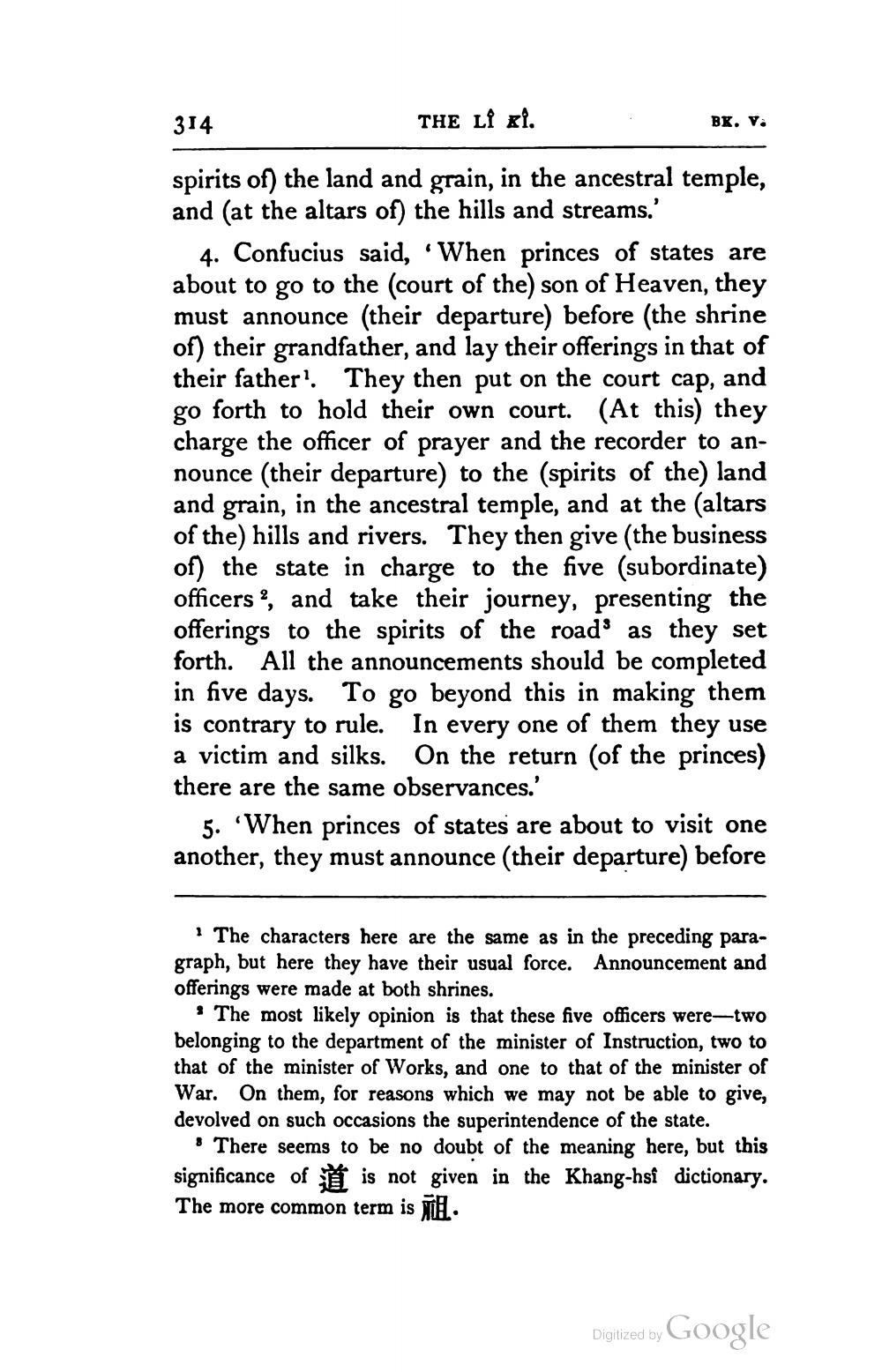________________
314
THE LÎ xi.
BK. V.
spirits of) the land and grain, in the ancestral temple, and (at the altars of) the hills and streams.
4. Confucius said, When princes of states are about to go to the (court of the) son of Heaven, they must announce (their departure) before (the shrine of) their grandfather, and lay their offerings in that of their father? They then put on the court cap, and go forth to hold their own court. (At this) they charge the officer of prayer and the recorder to announce (their departure) to the (spirits of the) land and grain, in the ancestral temple, and at the (altars of the) hills and rivers. They then give (the business of) the state in charge to the five (subordinate) officers ?, and take their journey, presenting the offerings to the spirits of the roads as they set forth. All the announcements should be completed in five days. To go beyond this in making them is contrary to rule. In every one of them they use a victim and silks. On the return (of the princes) there are the same observances.'
5. “When princes of states are about to visit one another, they must announce (their departure) before
1 The characters here are the same as in the preceding paragraph, but here they have their usual force. Announcement and offerings were made at both shrines.
The most likely opinion is that these five officers were—two belonging to the department of the minister of Instruction, two to that of the minister of Works, and one to that of the minister of War. On them, for reasons which we may not be able to give, devolved on such occasions the superintendence of the state.
* There seems to be no doubt of the meaning here, but this significance of is not given in the Khang-hsi dictionary. The more common term is will
Digitized by Google




